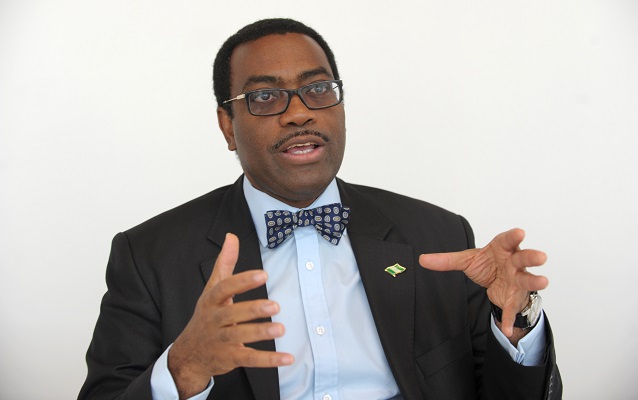
AfDB to invest $24bn in 10-year agric transformation plan
The president of the African Development Bank (AfDB) Dr Akinwumi Adesina, has said the bank through its Feed Africa Strategy, would invest $24 billion over the next 10 years to help drive the agricultural transformation of Africa.
This he said is a 400 per cent increase in financing to the agricultural sector by the bank.
According to Dr Akinwumi, “The bank’s calculation is that transforming African agriculture will cost approximately $315 billion over 10 years, but will create new markets worth roughly $85 billion per year in incremental revenue by 2025.”
He urged that, for its part, Africa must concentrate on adding value within Africa. “There has to be a shift from the export of raw agricultural products to a more productive and wealth-enhancing strategy, namely the generation and consolidation of value along the agricultural production chains.
“We can save billions of dollars every year this way (at least $35 billion and rising fast each year), instead of spending it on buying in food that we should be growing and processing ourselves”, he said.
He maintained that “agriculture is the original mainstay of African countries because it produces the majority of food consumed, giving employment to over 60 per cent of Africans and contributing 16.2 per cent of Africa’s overall GDP.”
Dr Akinwumi while speaking to the heads of diplomatic missions and international organisations accredited to Côte d’Ivoire, Abidjan, on February 16, 2017 however noted that Africa’s agricultural productivity and yields were among the lowest in the world.
He said there were still huge and unexploited growth opportunities. The continent is endowed with 65 per cent of the world’s uncultivated arable land and huge reserves of water.
The AfDB president said, “Seizing these growth opportunities in agriculture will require removing many obstacles, like clearing the stones from a field before it can be tilled”.
“These stones include the low rate of adoption of modern inputs, erratic weather conditions, weak mechanization, lack of access to credit and finance, insufficient agronomic knowledge, and inadequate land tenure systems and property rights. “But what does that look like on the ground? The fertility of many valleys on the coast of Senegal is being destroyed by advancing salinity as a result of the decrease in rainfall, an impact of climate change’, he added.
“Some 800,000 hectares of land and thousands of farmers are estimated to be affected by salinisation in Senegal. The Senegalese Government, funded by the Bank, set up the Project to Support Local Small-Scale Irrigation (PAPIL) to reduce poverty and strengthen food security through the promotion of water-control infrastructure and measures to adapt to climate change.
“The results have been spectacular. The project will have enabled construction of 58 salt-exclusion schemes, the recovery of 7,000 hectares of salinized land and the protection of 11,500 hectares of land from salt-water intrusion. In terms of capacity-building, 11,000 farmers have been retrained.
Dr Akinwumi said “One of them, Samoura Kénioto, from Kédougou said, “I’ve never harvested as much rice as I have this year from a quarter of a hectare, thanks to PAPIL. I’m growing 1,500 kg of paddy rice. This is totally new for me and it assures me of food security.”
He further stated that the bank would also scale up its agro-industrialisation interventions through the creation of mechanisation programmes and agro-processing zones and corridors, the coordination and financing of infrastructure projects at national and regional levels, and supporting the development of warehouse receipts systems.